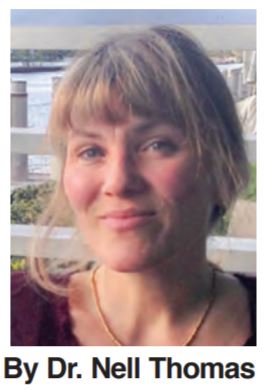PROBLEM:
“We are on a highway to climate hell with our foot on the accelerator. We can sign a climate solidarity pact, or a collective suicide pact,” said Antonio Guterres, Secretary General of the United Nations in November 2022.
Continuing the status quo of extracting Earth’s resources ultimately costs everyone everything, yet silencing the voices screaming for climate justice has always been the pattern.
“I was arrested for civil disobedience … I turned 82 in jail!”, says actor and activist Jane Fonda, urging bold action. “There’s no time to wait. This planet is all we’ve got. Defend it.”
Fonda and others go to jail – some for years – for the “crime” of shouting alarm in defence of the planet. Worse, more than 1,700 environmental activists have been murdered in the past decade; four people are killed each week trying to protect land and environment (Global Witness, Decade of defiance, September 2022). Reporters say these are underestimates because of growing restrictions on journalists and civic freedoms.
Violence against Indigenous environmental defenders is reported worldwide. Murders in the Global South involve organized crime and government groups. In Europe and North America, police and judges are responsible for silencing environmental defenders. In England, police now use section 35 dispersal orders, designed for “anti-social behaviour, crime, or disorder” to criminalize protesters. Climate scientists are locked up for peaceful climate protests. In British courts, environmental protesters are not allowed to defend their motivations to juries, despite a charge of “causing a public nuisance,” carrying a potential maximum sentence of life imprisonment.
In January, 26-year-old Manuel Esteban Paez Terán was the first reported environmental activist to be killed by police in United States history. Terán was killed when police raided an encampment of people trying to stop the cutting of a forest near Atlanta, Georgia where a massive police training complex (Cop City) is being built. In 2021, protests over the Line 3 pipeline in Minnesota prompted the pipeline company to spend millions of dollars to finance local police forces who allegedly intimidated and attacked activists.
Everyone is ultimately a victim of silencing, but suffering is not equal. The majority of the murdered environment defenders are from the Global South. Another disproportionately affected group are the world’s young people, who have contributed the least to the climate crisis but are the most affected. Thirty-nine per cent of respondents in a recent study of Canadian youth ages 16 to 25 report hesitation about having children, and 78 per cent said climate change affects their mental health (The Journal of Climate Change and Health, January 2023). The authors advise it is essential to recognize that young people are experiencing distress because of the failure of adults, decision-makers and governments to adequately talk about and address the climate crisis.
A further cost of silence is lack of knowledge and preparedness. A 2021 report from CSIS, that was allegedly kept quiet until now, acknowledges that, “climate change poses a profound, ongoing threat to Canada’s national security and prosperity.” The analysis says rising sea levels – including the possible loss of parts of British Columbia, the Atlantic provinces and the Arctic – will put serious pressures on coastal and border security as well as food and water supplies (The Canadian Press, March 2023).
Planning for climate change means talking about it, anticipating floods, building robust infrastructure such as bridges, communication, and transportation networks ahead of time, rather than responding after a catastrophic event. Discussion in the CSIS report includes anticipated unprecedented volumes of climate refugees, the migration to Canada from uninhabitable parts of the world.





